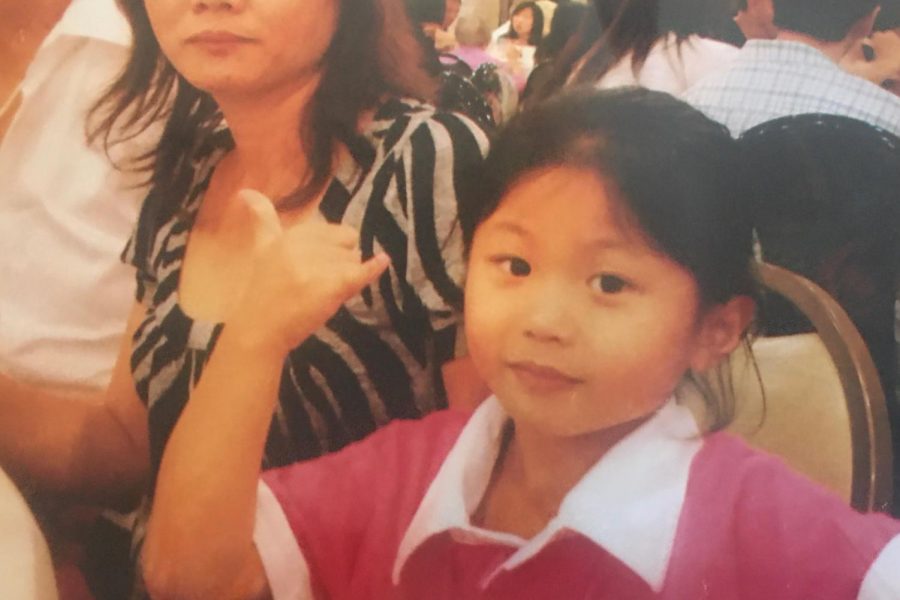A name’s pronunciation matters
By Photo provided by My Que Ly.
My Que Ly understood that her name was hard to pronounce at a young age.
November 19, 2021
Everyone is born with a name. In America, some are lucky enough to have a generic name (sorry) while others are kept with their exotic and unique name. Nothing is wrong with that.
However, the struggle one must face with an ethnic name is… a lot. Maybe it’s just the different phonemes the basic sound unit of words each language has, but not learning how to correctly pronounce a person’s name is ignorant and insensitive.
My earliest memory is when I was brought to a nursery. I remember feeling scared, knowing my mother would leave me to some strange adults I’ve never met. I remember latching onto my mother’s t-shirt and begging her to not leave me. One of the ladies pulled me off and whispered that my mom would come back. I looked at her in disbelief and started to bawl at an unimaginable frequency. I remember snot dripping from my nose, sticking onto the poor employee’s nice shirt.
When I was introduced to everyone else in the nursery, I remember their eyebrows furrowing in a confused expression that I couldn’t comprehend. “My Q” I heard them say. I gave them a confused look and nodded. My family doesn’t call me that, but I didn’t want to offend them. For as long as I could remember, people called me My Q (pronounced like the possessive adjective, “my” and the letter “q”). I understood that my name was hard to pronounce at a young age.
Whenever it was a new school year, I just told my teachers to say My Q. I dreaded every time a class had a substitute because that meant I would see their heads staring down at the attendance sheet longer than other names like “Emily” or “Sarah” (sorry to the Emily’s or Sarah’s out there).
It was my first day at McKinley as a freshman and I remember my art teacher pronouncing my name the correct way, but I was so used to My Q that I mistakenly corrected her. It’s quite ironic.
Over the summer before sophomore year, I felt like I was partaking in the problem by letting people mispronounce my name. I didn’t want to become an example people use to justify the mispronunciation of another person’s ethnic name. Right then and there, I texted my close friends to announce this discovery. While I was waiting for their response, I was sweating. Then, I heard a “ding!” “Wait really? We’ve been mispronouncing your name all this time? Why didn’t you tell us?” in grey. I didn’t know how to respond. While I was overwhelmed by the support, I couldn’t understand why I had been so compliant.
The next school year was about to start, and I was nervous again. I knew that not everyone would accept this new change. On the first day of school, I tried to fix my teachers’ pronunciation of my name. However, I’m pretty forgetful, and that didn’t work out in some classes.
This realization felt weird to me. My parents raised me to not be assertive because it’s rude, so the fact that I was brave enough to do this kind of thing was unlike me. To this day, I still slip up and call myself My Q, but it’s a learning process. There are still people that mispronounce my name, but I don’t blame them. Sometimes I don’t even fix the mispronunciation because I’m too lazy and don’t want to repeat that line: “There’s supposed to be accent marks on my name, but on documents there’s none of that because-”
In the end, though, if you have an ethnic name like me, you should take the initiative to correct people’s pronunciation of your name. Life is too short to let others mispronounce your name.
*This editorial was revised for conventions Dec. 8, 2021.





